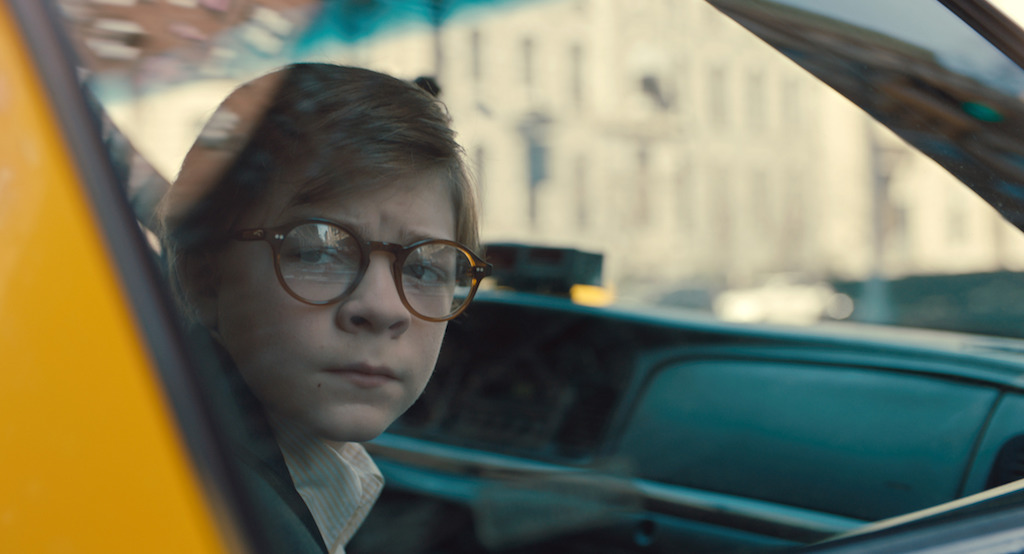
Transforming a beloved novel into a movie can be a tricky endeavor. Ideally, you’ll find that sweet spot between honoring the content and spirit of the book while also creating something that stands alone as a discrete work of art. Stay too faithful to the book (see: the first two Harry Potter adaptations) and the film has no magic, no music of its own. Stray too far (see: Baz Luhrmann’s The Great Gatsby) and it becomes too idiosyncratic. (If you’re going deviate that much from the tone of the novel, why not just create something entirely new?)
I’m afraid that director John Crowley never quite hits that sweet spot in his adaptation of Donna Tartt’s Pulitzer Prize winning The Goldfinch (a shame because he really did nail it with 2015’s Brooklyn). Fans of Tartt’s book, like myself, will enjoy the film to an extent, because there’s always some pleasure to be derived from seeing things you had envisioned in your mind’s eye come to life on the screen. Indeed, many of the scenes were recreated exactly as I had imagined them, particularly the long stretch of the book that takes place in the suburbs of Vegas and the scenes in the home and workshop of the master antique dealer (Jeffrey Wright) who becomes a mentor and father figure to our rootless hero. The casting and acting is pretty unimpeachable across the board, too. But the film never becomes something worthwhile on its own merits—it feels inert, prosaic—it never swings. During one particularly dramatic scene toward the end of the film, I caught my movie date, my sister, Felicia, sniffling. I was surprised because I had found the film so curiously unmoving. She explained to me later that she was crying because she was remembering how much she had loved that part in the book.
In case you haven’t read the book, or need a refresher, the story focuses on a 13-year-old boy named Theo (solemn-faced Oakes Fegley), whose mother dies in a bombing at the Metropolitan Museum of Art. Theo survives the bombing himself and, in the confusion, and partly egged on by a courtly old man who is dying, he snatches the famous “The Goldfinch” painting from the rubble. In the book, this painting takes on a far greater significance than it ever manages to do in the film. For starters, Theo knows it’s his mother’s favorite painting, so he has an ineffable emotional attachment to it. Beyond that, it becomes a source of obsession, paranoia, and even personal identity for young Theo—its presence is felt, metaphorically at least, in virtually every scene. In the film, it feels more like a minor plot point.
As his deadbeat father is nowhere to be found, Theo is taken in by the family of a school friend, the wealthy and waspy Barbours. They are an emotionally remote family, who live in a gigantic apartment on the Upper East Side filled with fine art and antique furniture, but Mrs. Barbour (Nicole Kidman) develops an attachment to her sad, quiet houseguest, who seems to appreciate the apartment’s treasures way more than her own children. Just when it seems that Theo will become a permanent member of the Barbour family, his father (Luke Wilson) shows up with his blowsy girlfriend (Sarah Paulson) and they whisk Theo away to a hellish stretch of deserted Las Vegas suburbia. It’s there that Theo meets his schoolmate Boris (played as a boy by Finn Wolfhard), a kind of Ukrainian Artful Dodger, and the sort of colorful, larger-than-life character that can be difficult to transition from page to the screen. Eventually, Theo escapes from Vegas, heads back to New York City, where he grows up to be Ansel Elgort (doing solid, appropriately restrained work), becomes an apprentice to Hobie, his patron saint antique dealer, and begins a lackluster romance with the Barbour daughter, Kitsey (Willa Fitzgerald). All the while, he’s pining away for Pippa (Ashleigh Cummings), the red-headed girl he first spied at the Metropolitan Museum of Art on that fateful day and the niece of the courtly old man he met in the rubble (also Hobie’s business partner). In New York, he also reconnects with Boris (now played by Aneurin Barnard, who might actually be shorter than Wolfhard) and gets swept into the world of illegal international arts dealing.
As many have complained, the film has a very leisurely pace for most of its 2 and a half hour running time and then lots of stuff happens, all at once, at the end. I didn’t find the first three-quarters of the film boring, as some have, partly because I was able to fill in all the emotional blanks with my knowledge of the book. I’m not sure if The Goldfinch movie proves that the book is unfilmable (I’m still holding out hope for a Sofia Coppola adaptation of Tartt’s The Secret History), but it certainly falls into the trap of many an adaptation. It’s handsomely mounted, respectful to a fault, well-acted—and totally bloodless.
